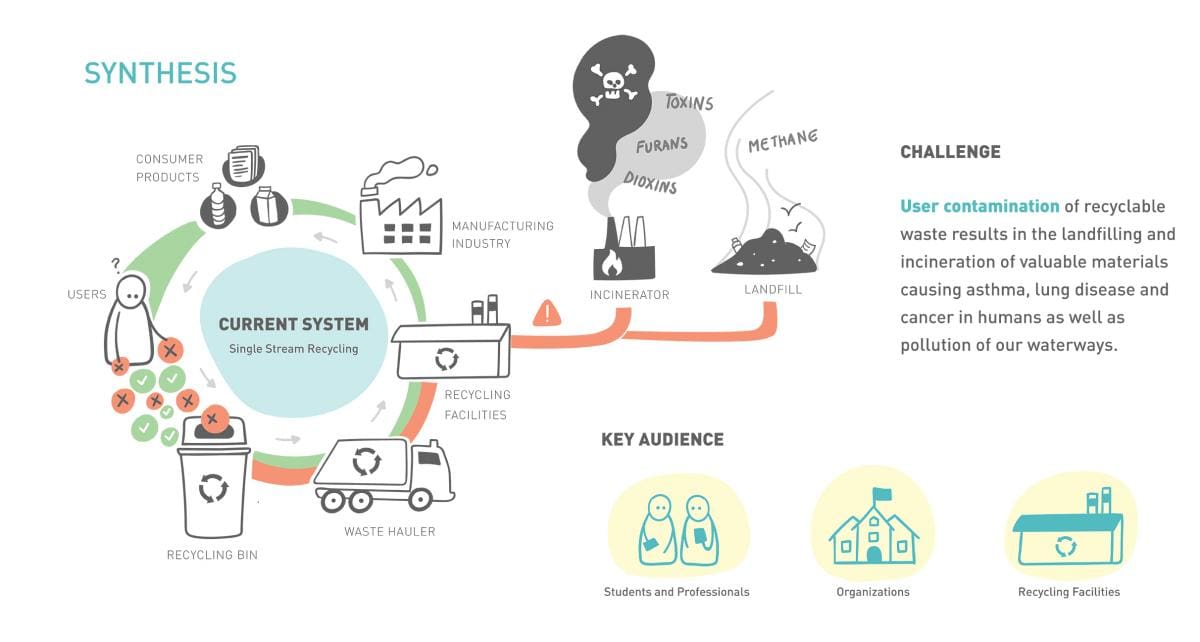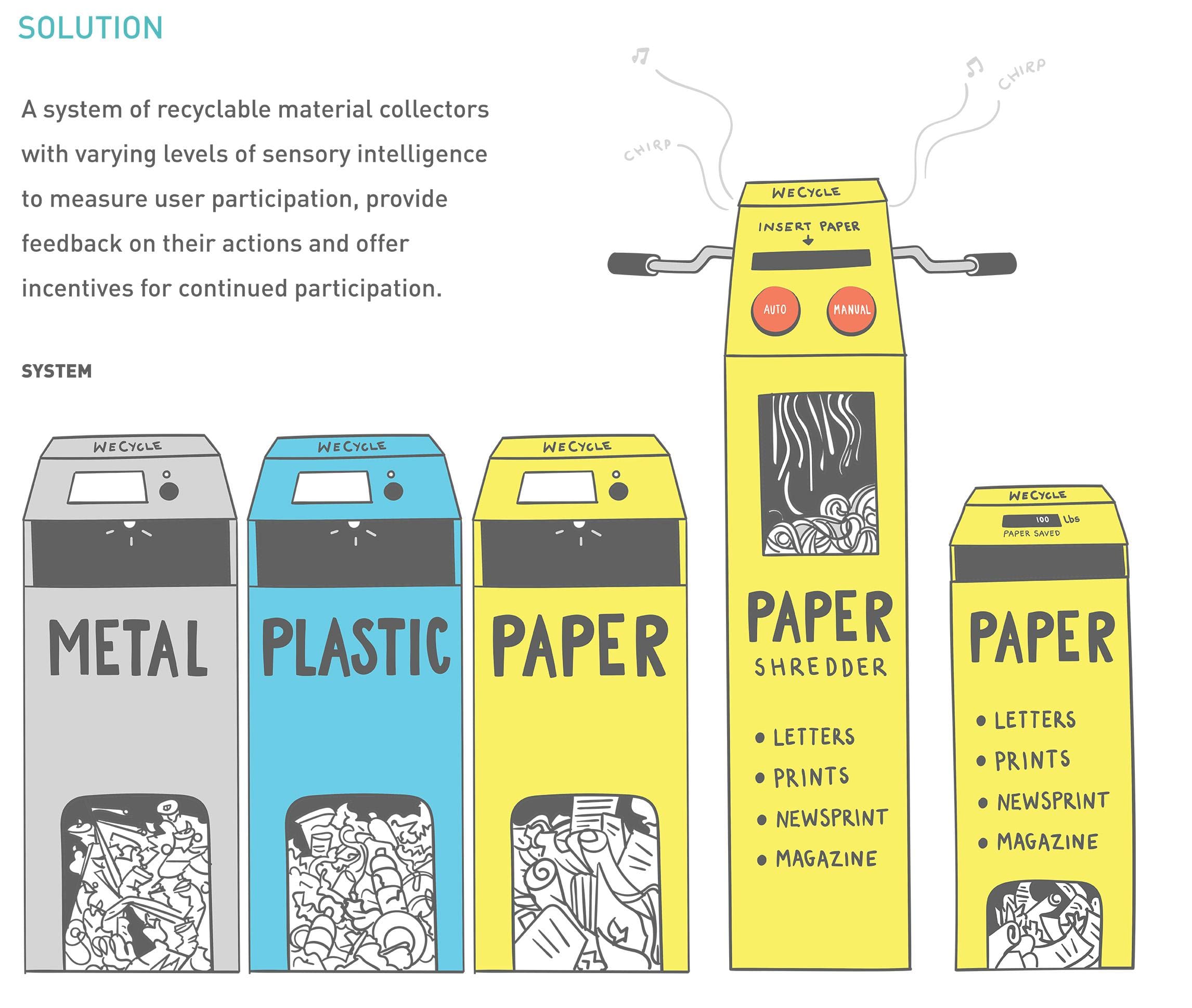A Rewarding Experience
December 5, 2019A Rewarding Experience
Americans produce more than 267 million tons of trash, on average, in a single year — that’s 4.51 pounds of trash per person — and recycle about 40 percent of it, according to the most recent figures from the U.S. Environmental Protection Agency (EPA). Successfully managing trash, or what the EPA calls municipal solid waste, couldn’t be more urgent. Yet when we consider the gritty day-to-day of waste disposal, human psychology plays a big role in when, how or even if, any one individual will participate in a recycling program.
That’s the vexing problem MFA Interaction Design graduate Khyati Shah hoped to address with her thesis project, WeCycle, a system of material collectors with varying intelligence designed to make recycling fun, easy and accessible.
User contamination of recyclable materials is a large part of the problem. People often don’t know or understand all the rules for prepping items for recycling. “WeCycle is designed to help reduce contamination of recyclable waste collected and encourage consistent user participation by stimulating intrinsic and extrinsic motivation,” Shah said.

Her research found that people are more inclined to participate in an activity if it satisfies the three main human psychological needs of autonomy, competence and relatedness — that is, it’s something they are willing to do, they have the know-how to do it, and they understand their role in the process. According to Shah, the WeCycle system would “use varying levels of sensory intelligence to measure user participation, provide feedback on their actions and offer incentives for continued participation.”
The system design includes three collectors. Using computer vision technology, the Smart Collector detects user contamination and provides feedback to the user via reward points, which could be redeemed using services like Google Pay. The Joyful Collector allows users to grind or shred their own materials (saving a step in the overall recycling process) by cranking, stepping or pulling levers. The reward? Birdsong, a gentle reminder of the environmental impact of their actions. The Mute Collector weighs recycled materials, tallying users’ collective contributions.

Shah noted that “WeCycle could be implemented in large public areas and organizations to recover massive amounts of recyclable material and suggest new social norms around waste disposal.” The system is also suitable for school, business and corporate applications.
“I am personally invested in the health of the environment, and recent failures in the recycling industry have opened pathways to alternate solutions and new ways of thinking about the system,” Shah said. “I saw this project as an opportunity to explore the possibilities of what the future of recycling and waste management might be.”
